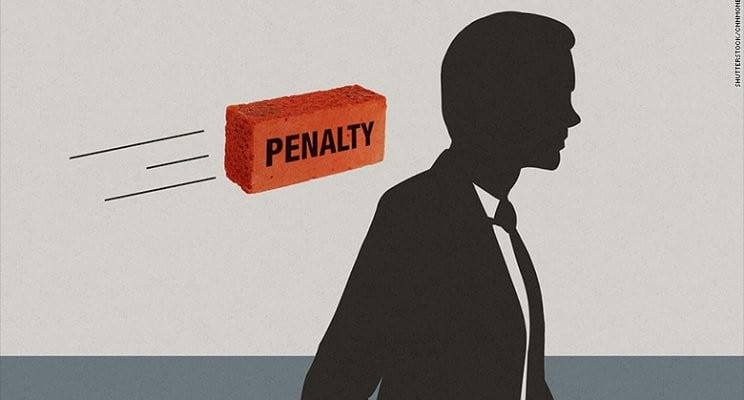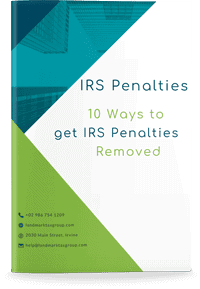It is common knowledge that not paying your taxes can result in a penalty, but so can other things. The IRS has the ability to penalize someone for many things, including underpaying on taxes. Even those who try to plan ahead throughout the year, and fail to withhold enough earnings in order to pay the debt owed to the agency fully, could suffer. There are many different structures that apply to the law, each based on the filing status of the taxpayer and the amount of taxes paid the year before. Higher earners may also fall under a different structure. Generally, the taxes from the year before can help to prevent the penalty if they are fully paid.
IRS Tax Penalty Amount
If an hourly employee files a W4 incorrectly by claiming the wrong number of dependents, for example, they may fall victim to the underpayment penalty. The same applies to salaried employees who fail to withhold the correct amount of tax despite filing the paperwork correctly. Self-employed individuals, such as business owners, attorneys, doctors and realtors, are the most likely victims, as they must estimate the amount of tax they will owe at any given time. If you fall into this category, you may face a penalty by doing something as simple as forgetting a quarterly payment. Since the income of a self-employed person can vary, this can happen without one even noticing.
In all cases, an IRS tax underpayment penalty can be assessed if the required amount of tax is not paid when the return is filed. A taxpayer will then receive an IRS Notice or Letter informing them of the balance due. This signifies the start of the IRS Collection Process.
The penalty amount you’ll be assessed is based on how much you owe and how long you’ve owed it. The typical penalty is 0.5 percent of the total amount you owe calculated for each month it remains unpaid. And, of course, there is interest.
How to Avoid IRS Tax Penalties
If you are one of over 13 million taxpayers who are facing penalties from the IRS for underpayment of taxes, you may be able to avoid the penalty. There is more than one way to do this. If less than a thousand dollars is owed after subtracting withholdings and estimated payments, the penalty may be avoided. If there was no liability in taxes the previous year, you may also be able to avoid the penalty. Paying ninety percent (90%) of the owed taxes for the current year is another way to avoid the penalty, or a person may instead pay a hundred percent of the previous year’s tax amount, whichever amount is smaller.
Farmers, fisherman, household employers, and high income taxpayers all have different rules when it comes to the percentages that need to be paid in order to avoid the underpayment penalty. For those who are unable to avoid the penalty, steps can be taken to avoid it in the future. For example, a person may want to consider increasing the tax withholdings from their paycheck. Those who have their own businesses should take the time to estimate the payments before the deadlines in the current year.
When the Tax Penalty Has Been Applied
After the underpayment penalty has been applied by the IRS, taxpayers may have a chance to get the penalty removed. The IRS may consider removal of the penalty under certain circumstances the agency refers to as Reasonable Cause.





